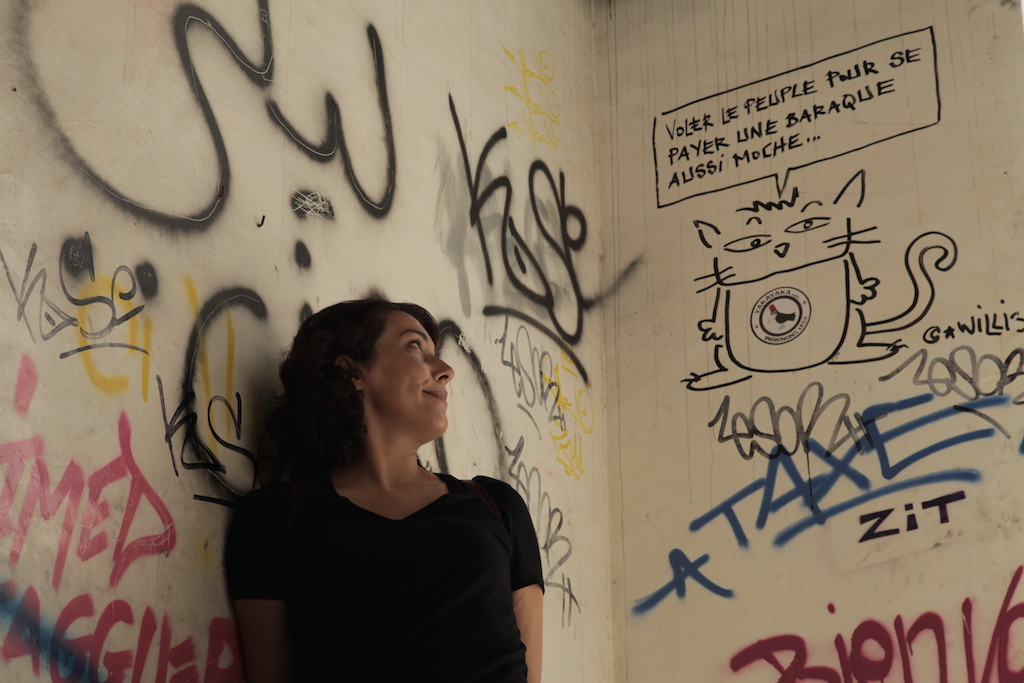“I wanted more than anything to denounce terrorism,” is the plaintive explanation from the Danish cartoonist whose infamous caricature of the Prophet Muhammad with a bomb under his turban sparked violent protests around the world in 2005.
Kurt Westergaard is one of many cartoonists featured in the French documentary Cartoonists: Foot Soldiers of Democracy (director: Stéphanie Valloatto), which has its Ontario premiere March 27 and 28 at the Reel Artists Film Festival in Toronto.
Created way before the Charlie Hebdo attacks in Paris, the film is a well-rounded collection of stories highlighting the difficulties and complexities of being a political satirist in various countries.
Delving into the motivations and lives of the cartoonists, we get glimpses into some of the joy they have in their work: “I was lucky, I had Sharon, Arafat and Bush!” and the dangers — a Syrian cartoonist is dragged out of his Damascus house, jailed and his fingers broken by henchmen for Syrian leader Bashar al-Assad.
The movie has a lovely storyline involving three cartoonist friends who regularly poke their drawing pens at the Israeli-Palestinian conflict as well as religious extremists: one is a Muslim living in Ramallah (whose family home is in Jerusalem), another a Belgian Jew who is an Israeli citizen, and the other a French cartoonist whose background is Christian. The French cartoonist, Jean Plantureux, who goes by the professional name Plantu, takes pride in the fact he was called an anti-Islamist, an anti-Semite and anti-Christian within a three-week period.
“A drawing that doesn’t hurt anyone, doesn’t exist,” Plantureux declares.

However, some of the most fascinating sections of Cartoonists involve satirists from Venezuela, Tunisia, China and Russia. As each person describes the conditions they live under and the politics they navigate, they reveal much about their precarious environments and thus, the courage with which they forge ahead with their art.
Tunisian cartoonist Nadia Khiari bemoans how the advent of democratic elections in her country didn’t bring about the freedoms she had hoped for: “Instead of fighting for new rights, we are fighting for the old ones.”
She describes Tunisia as place trapped in a cycle of “Nepotism, corruption, fundamentalism, worship and oppression.”
‘Random censoring’
Her Chinese counterpart runs his own mini-media factory — in which young animators help him put out videos online. Pi San, who insists he’s an artist and not a political commentator, said he grew up in a generation under Communism but as an adult living in modern times, he can’t help but notice the contradictions that exist in contrast to his upbringing.
Many of his animations are critiques of an old educational system in which “children were put through a machine” and taught to be workers for the cause.
He’s also well aware of what he calls a “random censoring system” in which there are “no specific rules” and it’s a line he treads with some caution. Artist Ai Wei Wei — a long-time critic of the Chinese government — makes an appearance here, describing the kind of artistic repression they both live under.
Meanwhile, Rayma Suprani in Caracas bemoans Hugo Chavez’s socialism, which she says allowed him to stockpile money and power for himself.
As the film takes dips into her life in Venezuela, we discover the restrictions residents live with. Watching her purchase groceries, we are told that every time you buy something, the store has to note your name, address and what you bought.
Suprani had hoped with Chavez’s death, his successor, Nicolas Maduro, would have a lighter hand. Instead, what Venezuelans get is more oppression in the form of censorship.
So what drives these “foot soldiers sent to the frontlines”? (That’s the observation of one of the French cartoonists about his profession).
Jeff Danziger of the U.S. — “The cartoon is a visual metaphor, it’s a warning.”
Mikhail M. Zladkovsky of Russia — “I’m naming and shaming stupidity.”
Plantu of France — “Democracy is an ongoing battle.”
But I’m most struck by the poetic ruminations of Suprani in Venezuela: “Freedom makes you think, it makes you grow.”
June Chua is a Toronto-based journalist who regularly writes about the arts for rabble.ca.
Photos from Cartoonists: Foot Soldiers of Democracy.
More info on the fest here:
http://canadianart.ca/raff/
The film was supported by the international organization Cartooning for Peace
Screening Times at TIFFBell Lightbox in Toronto:
March 27 6 p.m.
March 28 8:15 p.m.



